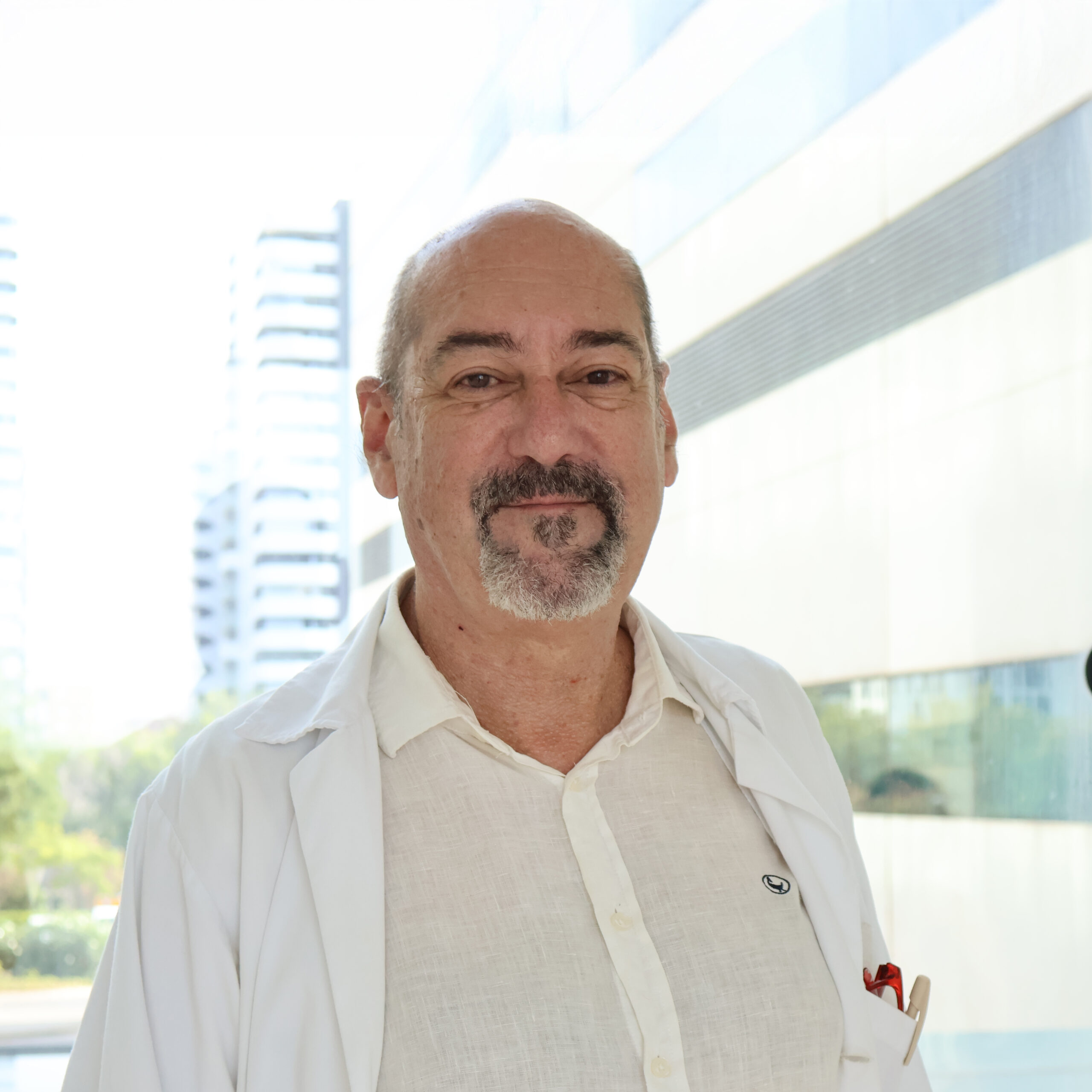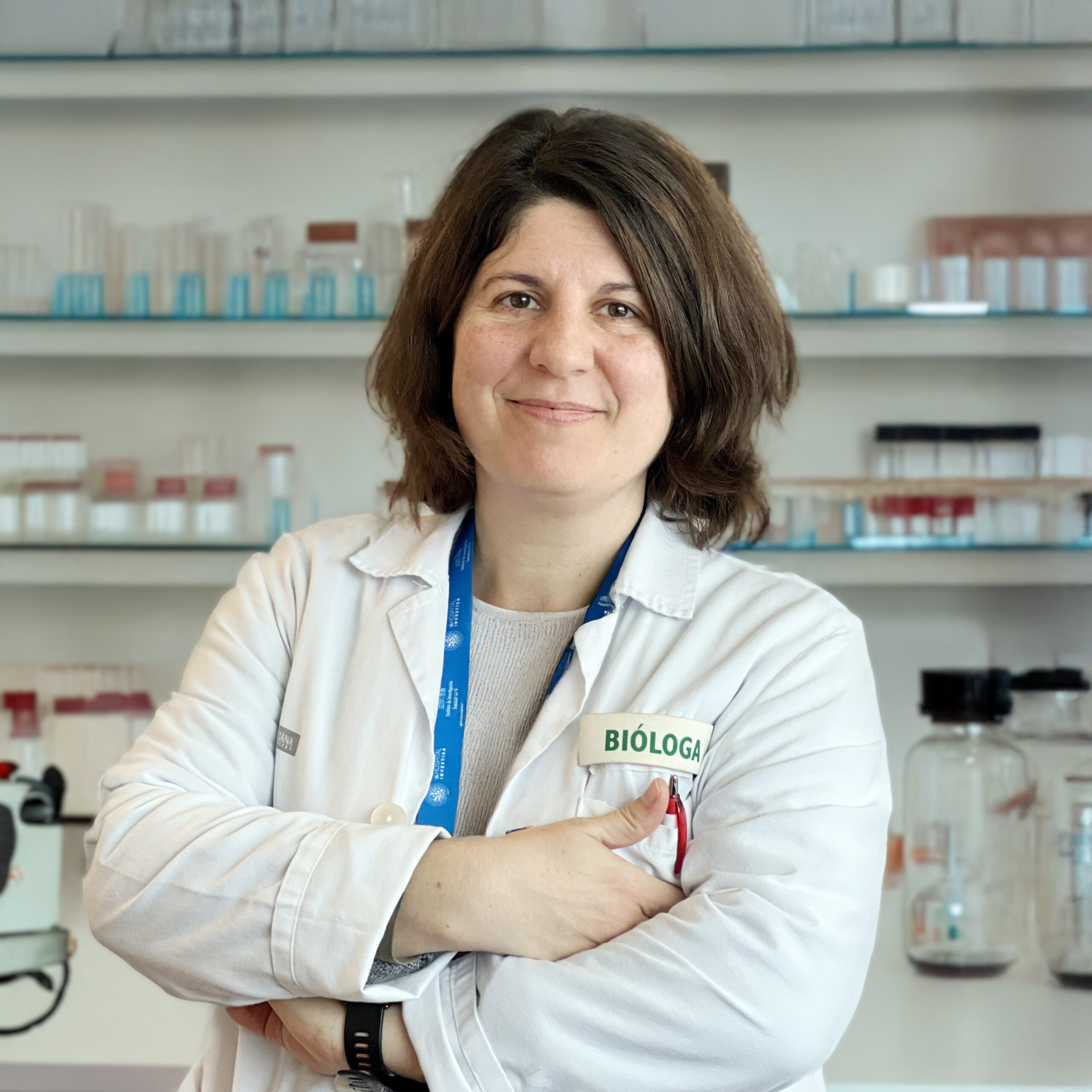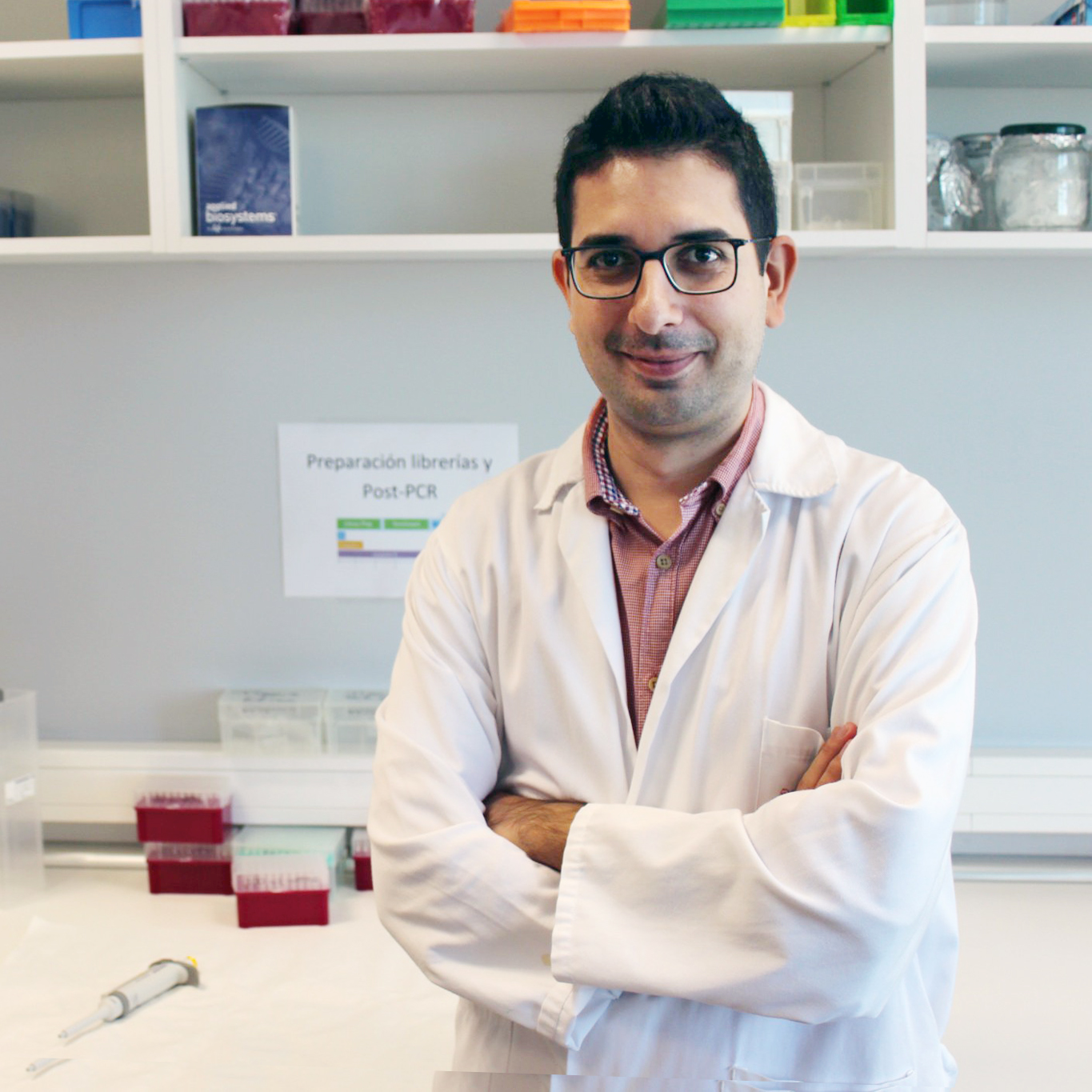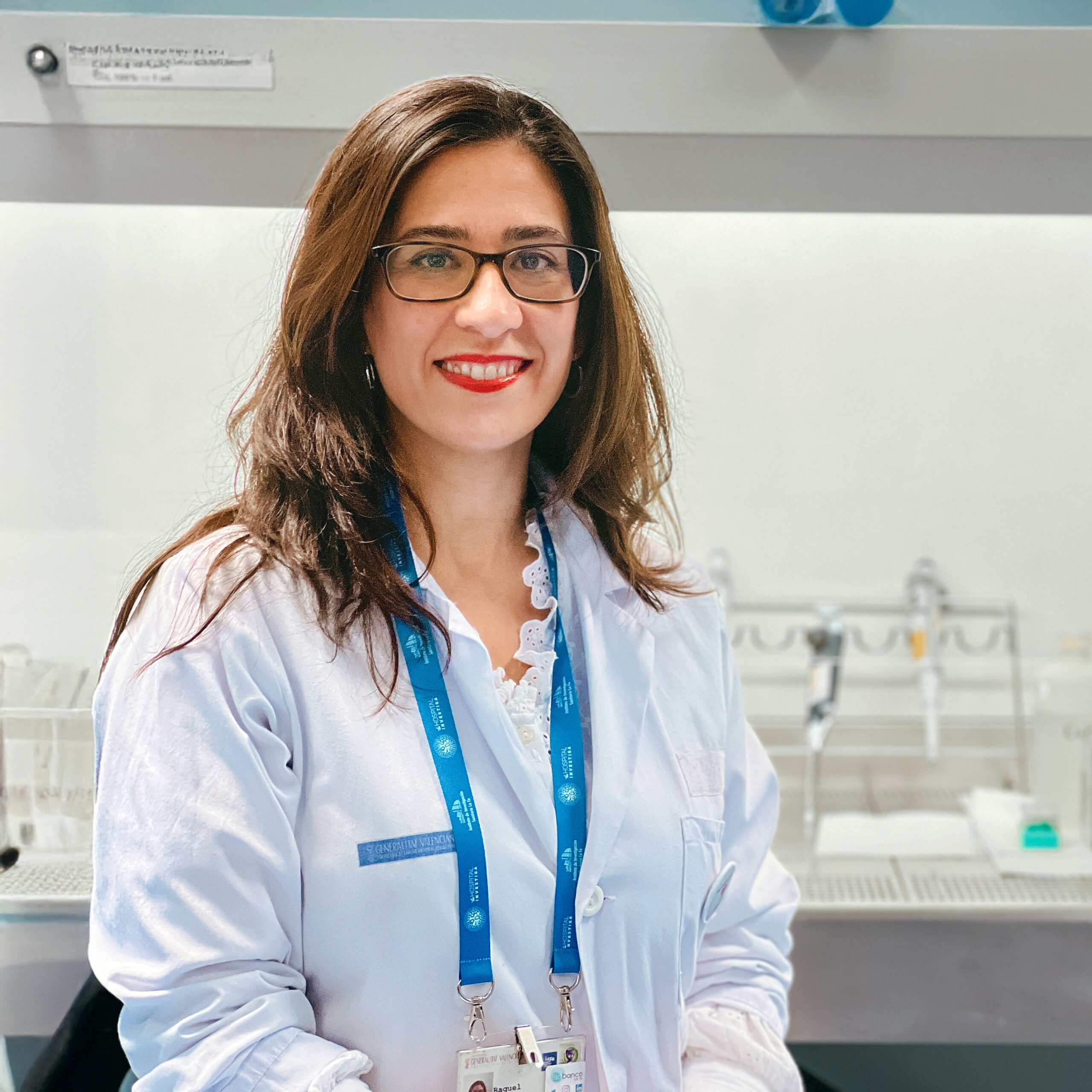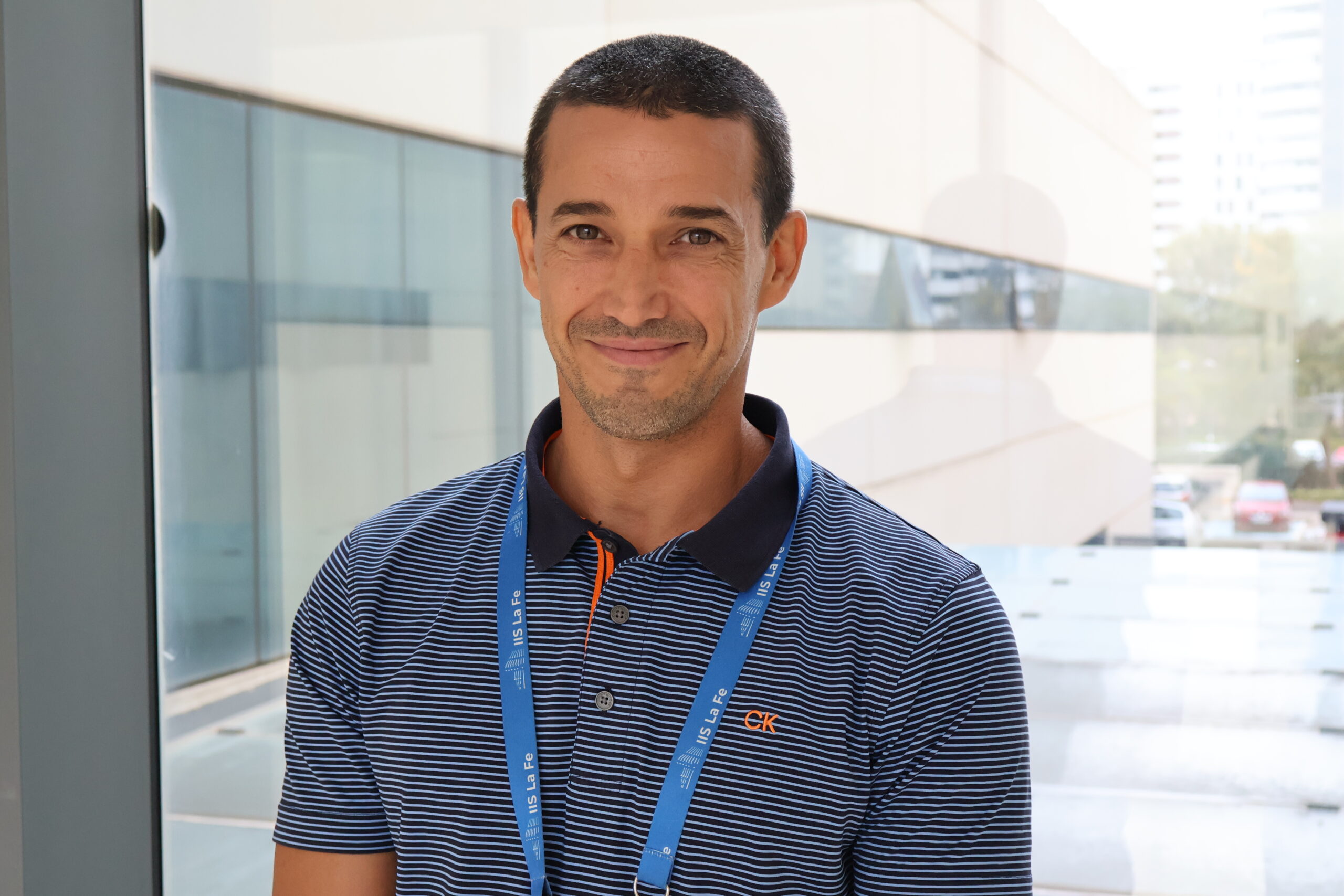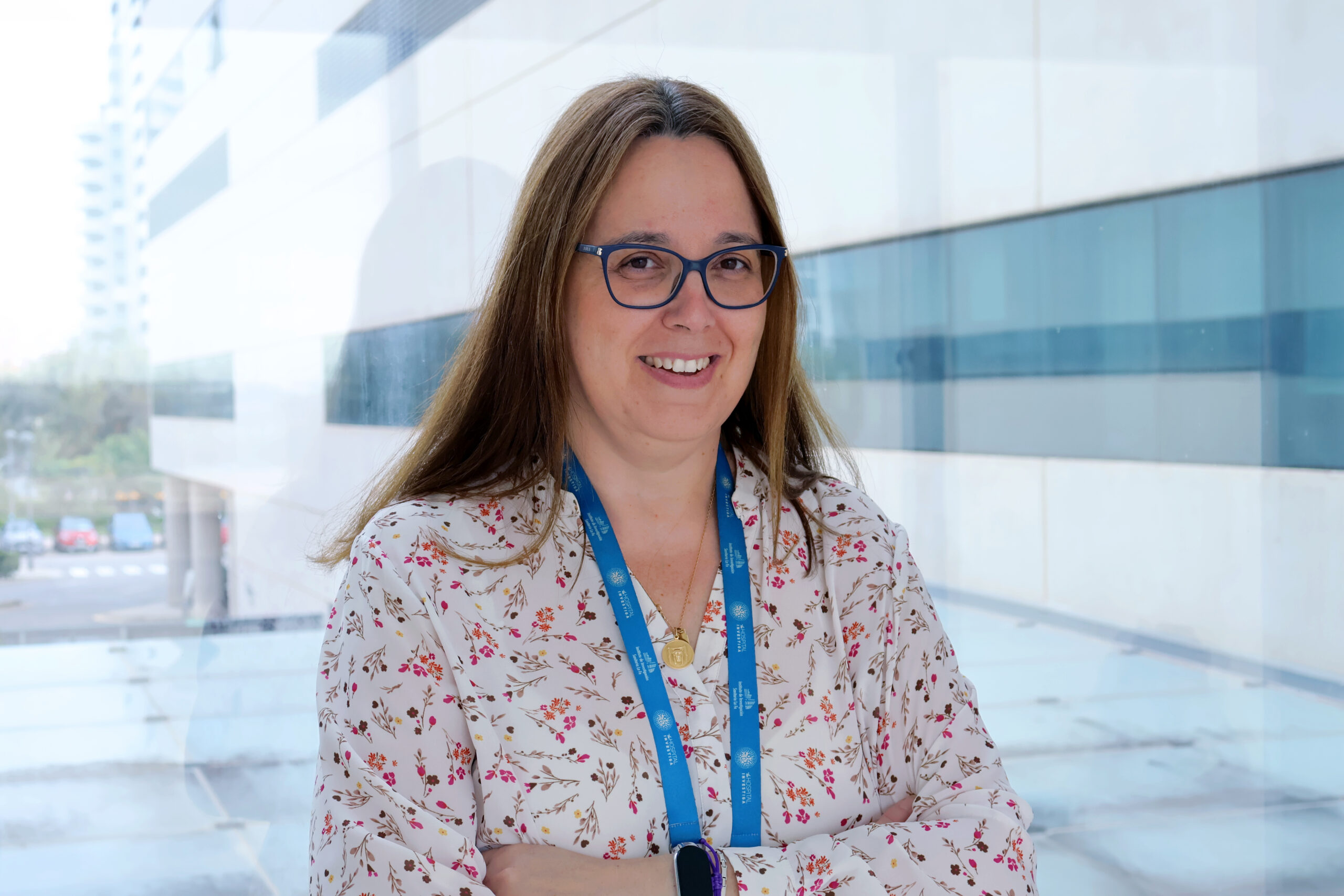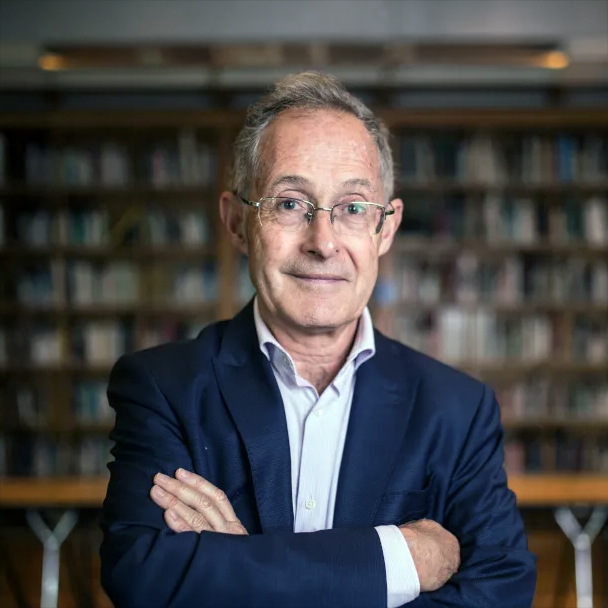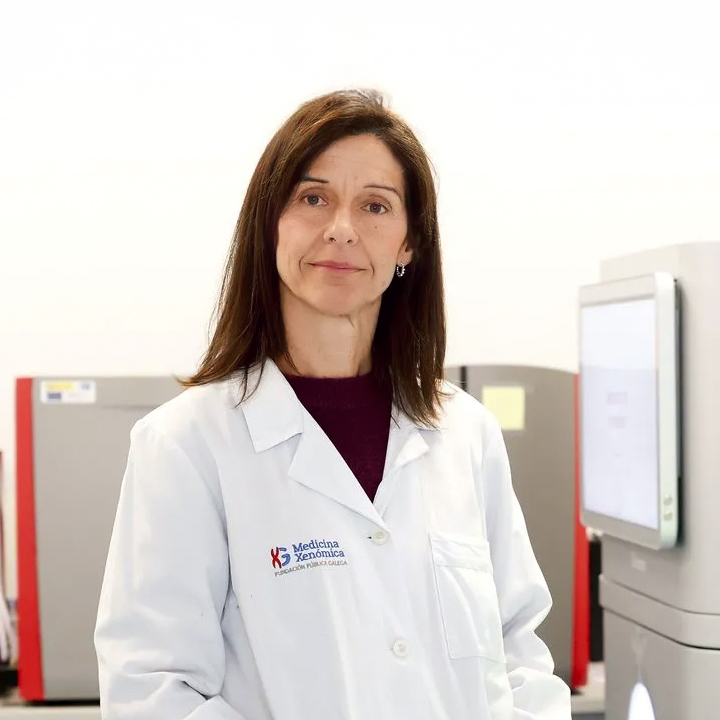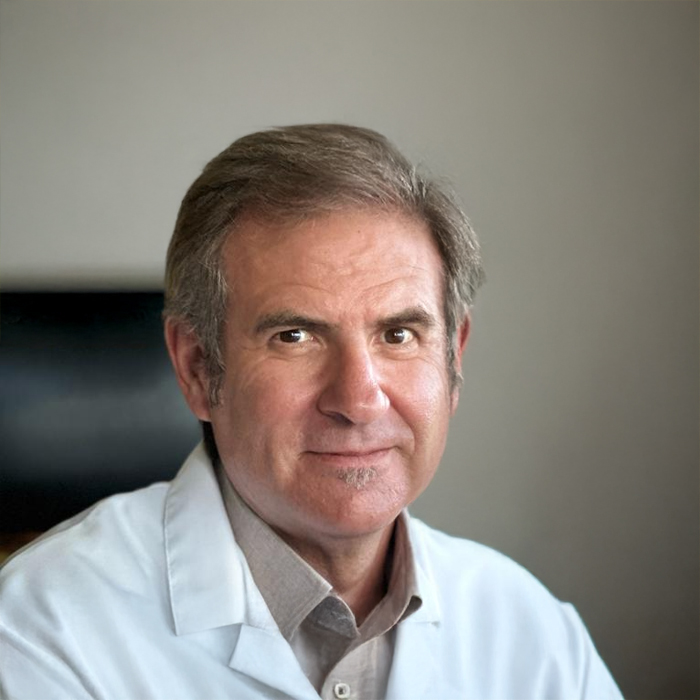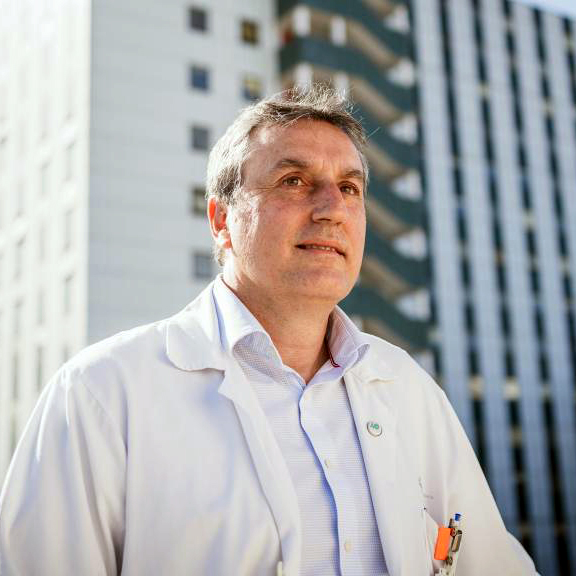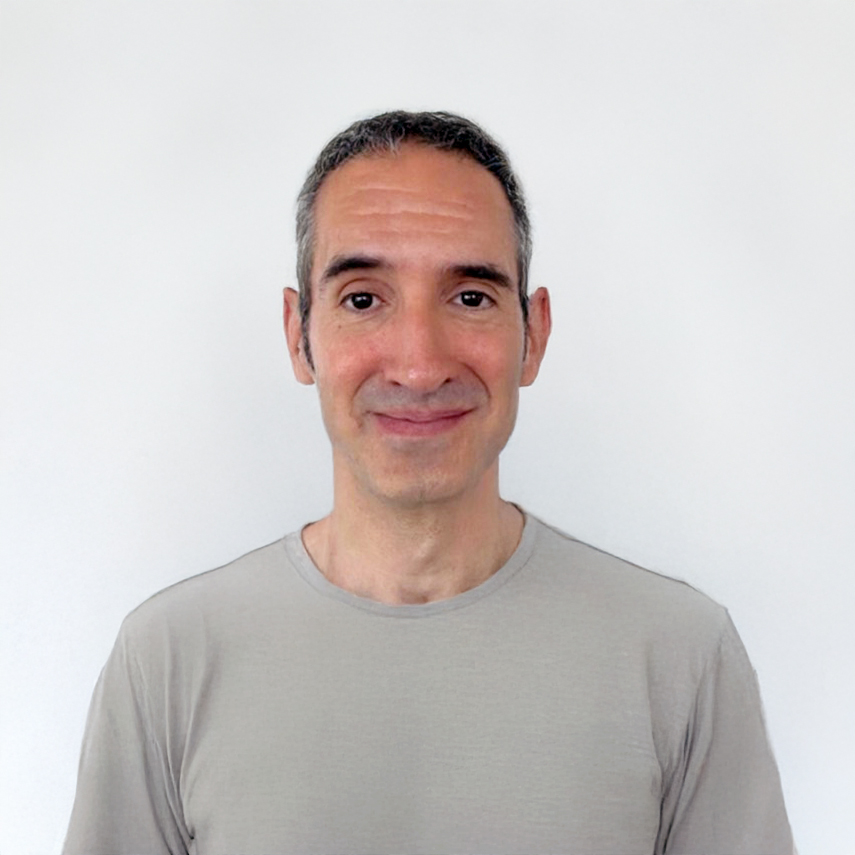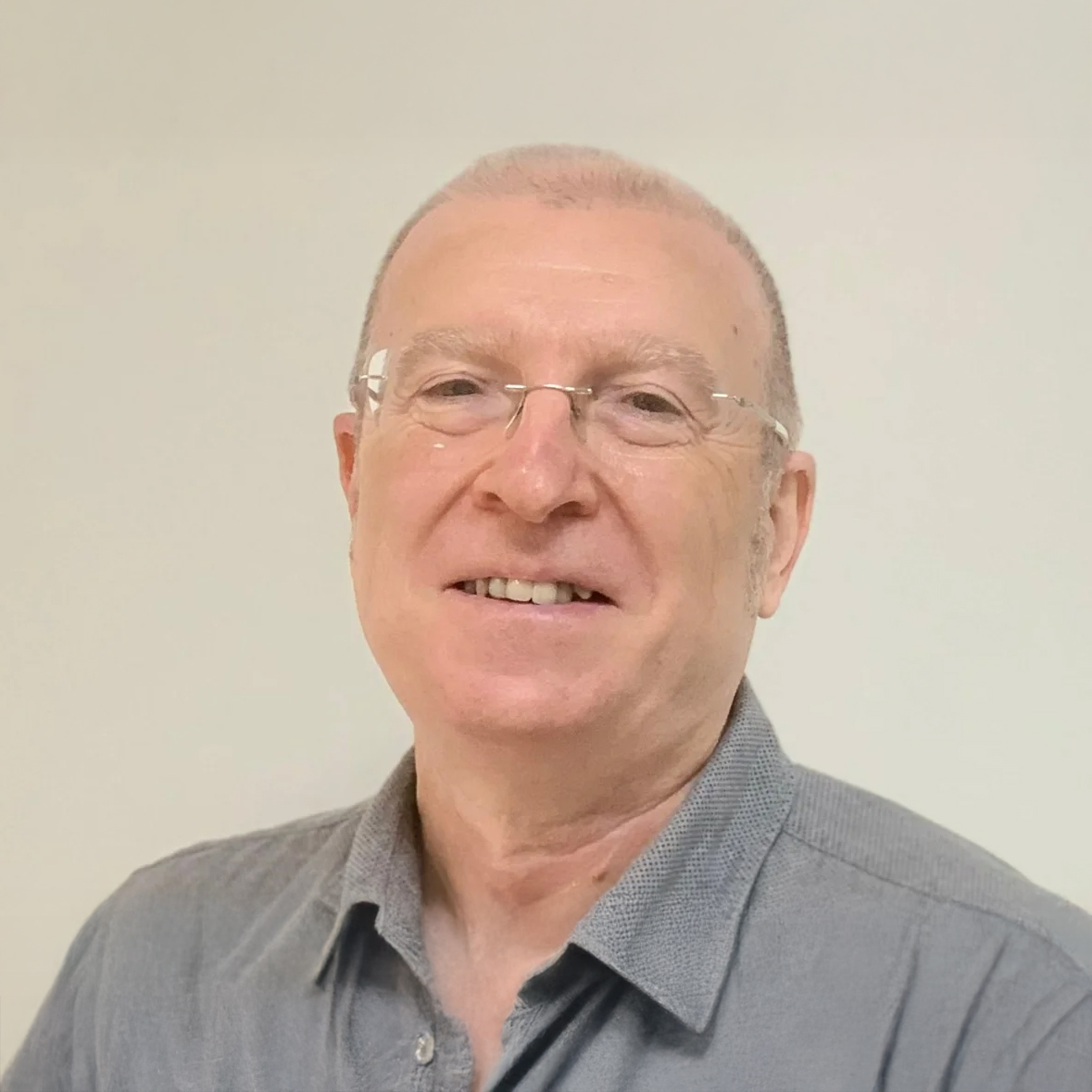OmicSpace Team
A shared data ecosystem for innovation in health
The OmicSpace project is led by the Instituto de Investigación Sanitaria (IIS) La Fe, which acts as the main promoter and coordinator. It brings together prominent institutions and research teams from across Spain, all committed to advancing research and innovation in health. The principal participants in the project are:
The Instituto de Investigación Sanitaria La Fe (IIS La Fe) is the biomedical research arm created jointly by the University and Polytechnic Hospital La Fe, the Universitat de València, the Universitat Politècnica de València, the Foundation for Research of the La Fe University Hospital, and the IVI Foundation.
José Mª Millán, PhD.
Lead researcher of the Molecular, Cellular & Genomic Biomedicine (BMCG) group at IIS La Fe and of U755 unit at CIBERER
He holds a PhD in Biology from the Universitat de València and is the Scientific Director at CIBERER. He leads the BMCG group at IIS La Fe (where he also served as Director General). With more than 200 publications and 50 led projects, he blends research, management, and clinical care in genetics. He participates in scientific committees such as Orphanet and FEDER and has contributed to the National Strategy on Rare Diseases. His lines of work include neurosensory pathologies, muscular dystrophies, neurodegenerative diseases, and precision medicine.

Gema García, PhD.
Researcher at the Molecular, Cellular & Genomic Biomedicine group, IIS La Fe
She is a Miguel Servet researcher at IIS La Fe, specializing in molecular genetics and genomics of rare diseases. She holds a PhD in Biotechnology from the Universitat de València and has worked in reference centers such as CIBERER and Montpellier University Hospital. She is author of over 20 publications and leads national and European projects in precision medicine, artificial intelligence, and genetic diagnosis. She is principal investigator of the Better-Health-Data (Horizon Europe) project and participates in initiatives like GENEBORN, DWADT-SensD, and IMPaCT-Genomics.
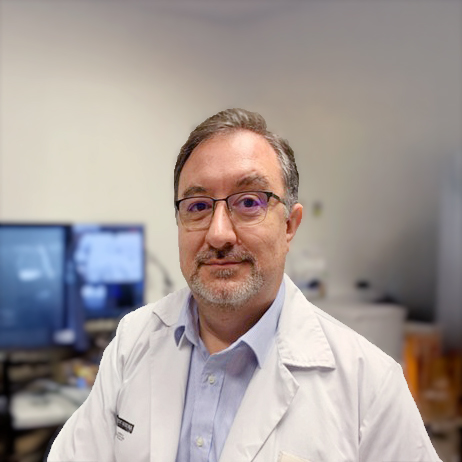
José Vicente Cervera, PhD.
Head of the Genetics Unit at La Fe University Hospital
He is the Scientific Director of the La Fe Biobank, specializing in genetic alterations in myeloid neoplasms such as MDS and AML. Co-author of the CPSS-Mol molecular classification system for CMML, and an active participant in national and international hematology research networks.
Mº José Herrero, PhD.
Scientific Director of the Pharmacogenetics & Gene Therapy Unit, IIS La Fe
She is a researcher at IIS La Fe and a professor at the Universitat de València, specializing in pharmacogenetics and advanced therapies. She leads projects in gene therapies, cancer cell vaccines, and colorectal cancer genomics, combining basic research with clinical application to drive personalized medicine.
Alessandro Liquori, PhD.
Postdoctoral Researcher, Hematology & Hemotherapy Research Group, IIS La Fe
He is a postdoctoral researcher in the Hematology & Hemotherapy group at IIS La Fe, focusing on molecular genetics of myeloid neoplasms. He obtained his PhD from the University of Montpellier, and his work centers on splicing alterations and mutations in myelodysplastic syndromes and acute myeloid leukemia. He has received support from the Spanish Hematology & Hemotherapy Foundation and the Generalitat Valenciana as an Emerging Principal Investigator.
Javier Ripoll
IT Coordinator at the IIS La Fe
Computer Engineer from the Polytechnic University of Valencia, with training in Biostatistics and Bioinformatics from the Open University of Catalonia (UOC). He is currently pursuing a Master’s degree in Cybersecurity and Privacy at the UOC. He has extensive experience in systems management, technical support, and software development. At the La Fe Health Research Institute, he has worked for several years on the continuous improvement of technological services, also collaborating in the definition of procedures and the supervision of information security.
Lucas Espuig
Coordinator of the Data Science Office at the IIS La Fe
He holds a degree in Law from the University of Valencia and has over 20 years of experience providing legal advice to ensure compliance with data protection regulations in a wide range of public and private institutions. His interest in new technologies has led him to specialize in telecommunications, information security, and artificial intelligence, among other fields. He is currently part of the Legal Department at IIS La Fe, where he serves as a data protection expert.
Maria Eugenia Gas, PhD.
Coordinator of the BDIAB Platform at the IIS La Fe
Mª Eugenia Gas López holds a degree in Biochemistry and a PhD in Genetics. She has developed her career in leading national and international research centers. Currently, she coordinates the Big Data, AI, and Biostatistics area at IIS La Fe and leads OmicSpace. Her work focuses on Big Data, AI, RWD/RWE, and the integration of clinical and omics data to redesign healthcare processes, leveraging a strong background in molecular biology and extensive experience in multidisciplinary environments.
The Aragonese Institute of Health Sciences (IACS) is the entity that promotes knowledge in Biomedicine and Health Sciences in Aragón. Its establishment is based on Law 6/2002 of April 15, on Health in Aragón, which states that IACS is a public law entity attached to the department responsible for Health of the Government of Aragón and grants it legal personality and its own assets.
Carlos Tellería, PhD.
Data Scientist, Biocomputing Area, IACS
He holds degrees in Physics and Computer Engineering. For nearly 30 years he has been involved in developing health information systems for the regional government of Aragón. He joined the Aragón Health Sciences Institute (IACS) ten years ago to design and deploy the Aragón Health Data Space (BIGAN), and has since contributed to projects like TEHDAS, HealthyCloud, IMPaCT-Data, and QUANTUM. His current responsibilities include configuring the Health Data Office in Aragón and bringing this experience to new health data spaces like OmicSpace.

The main asset of the Xenomic Medicine Group is the expertise of its researchers, all of whom have been trained at prestigious institutions and actively participate in various research networks worldwide.
Currently, the group consists of over 75 members, coordinated by Dr. Ángel Carracedo. The group is organized into four areas—Forensic Genetics, Medical Genetics, Evolutionary Genetics, and Services—which are further divided into laboratories corresponding to the group’s main research lines and activities.
Ángel Carracedo, PhD.
Director of the Galician Foundation of Xenomic Medicine and of the National Genotyping Center (ISCIII)
He is Professor of Legal Medicine at the University of Santiago de Compostela and a leading international figure in forensic genetics and genomic medicine. He has published over 550 articles and supervised more than 50 doctoral theses, placing his group among the global leaders in forensic medicine. He has received honors such as the Rey Jaime I Award, the Galien Medal, and the Adelaide Medal, and holds multiple honorary doctorates. He is actively involved in international organizations and projects in clinical genetics, pharmacogenomics, and rare diseases.
Mª José Brión Martínez, PhD.
Coordinator of Xenoma Galicia
She holds a degree in Biology and a PhD from the University of Santiago de Compostela. She coordinates the Xenoma Galicia Project and the Cardiovascular Genetics Unit at IDIS, integrating research and clinical care in the Familial Heart Disease Unit at CHUS. With over 25 years’ experience in human genetics, she has led more than 12 projects and published over 120 scientific articles.

The La Paz University Hospital Health Research Institute (IdiPAZ) is conceived as a multidisciplinary and translational biomedical research space focused on basic, clinical, epidemiological, and health services research. It is the result of the collaboration between La Paz University Hospital (HULP), the Autonomous University of Madrid (UAM), Getafe University Hospital (HUG), Universidad Europea (EU), and the Foundation for Biomedical Research of La Paz University Hospital (FIBHULP).
Fernando Martín, PhD.
Deputy Managing Director of Medical Informatics, Digital Strategy & Innovation, University Hospital La Paz
He holds doctorates in Computer Science and Medicine, with training in Biochemistry, Molecular Biology, and Knowledge Engineering. He is the Deputy Managing Director of Medical Informatics, Digital Strategy & Innovation at Hospital La Paz. He has international experience in the U.S., Australia, and Spain, and has led centers such as HaBIC (University of Melbourne) and held a professorship at Weill Cornell Medicine. He has driven initiatives such as INFOBIOMED, the ISCIII Digital Health Program, and the Spanish AI Strategy. His work focuses on biomedical informatics, artificial intelligence, and digital health.

The Foundation for Biomedical Research of Ramón y Cajal University Hospital (FIBioHRC) was formally established in 2003, authorized by the Regional Government of the Community of Madrid through Decree 187/2003 of July 24, under the framework of Law 1/1998 of March 2 on Foundations of the Community of Madrid.
Miguel Ángel Moreno, PhD.
Head of the Genetics Service, Ramón y Cajal University Hospital
He is the head of the Genetics Service at Ramón y Cajal University Hospital, a member of CIBERER, and leads the Neurosensory Genetics & Pathophysiology group at IRyCIS. He holds a PhD in Biology from the Complutense University of Madrid and has built a strong track record in human genetics, especially in hereditary hearing loss. He has identified genes such as CCDC50 and miR96, the latter being associated for the first time to a Mendelian monogenic disease. He has worked in animal models and functional studies, and is part of expert panels at the Carlos III Health Institute. He is also an associate professor at Universidad Carlos III of Madrid.
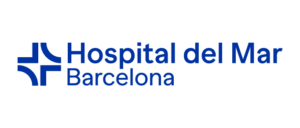
The Hospital del Mar Research Institute is part of Hospital del Mar and comprises more than 700 professionals. Its team includes researchers from the Hospital del Mar Research Institute, clinical researchers from Hospital del Mar, and other researchers from Pompeu Fabra University (UPF), the Autonomous University of Barcelona (UAB), and the BarcelonaBeta Brain Research Center Foundation (BBRC).
Miguel Ángel Mayer, PhD.
Director, Data Science Unit, Hospital del Mar
He is a physician and holds a PhD in Biomedical Informatics, specializing in Family & Community Medicine. He heads the Data Science Unit at Hospital del Mar in Barcelona and coordinates the Spanish node of OHDSI Europe. He has participated in numerous European projects such as DARWIN EU, EHDEN, EMIF, MedBioinformatics, and IMPaCT-Data, focusing on the secondary use of clinical data, artificial intelligence, and personalized medicine. He has published over 120 scientific articles and has promoted the use of standards like OMOP CDM to integrate data in research and enhance health system sustainability.
Juan M. Ramírez-Anguita, PhD.
Senior Researcher, Municipal Institute of Medical Research (IMIM)
He holds a PhD in Computational Chemistry from the Autonomous University of Barcelona (UAB) and is part of the Biomedical Informatics Program (GRIB) at IMIM / Hospital del Mar. He leads the standardization and mapping of the hospital’s research database to OMOP-CDM. He has engaged in international projects on computational chemistry, bioinformatics, and clinical data analysis, developing collaborative platforms such as GPCRmd, DisGeNET, and eTRANSAFE. He combines advanced computational techniques and harmonization of clinical data to promote real-world data integration in biomedical research. He is involved in DARWIN EU and the EHDEN Foundation.
Ángela Leis, PhD.
Researcher, Biomedical Informatics Program (GRIB), IMIM / Hospital del Mar
She is a psychologist with a PhD in Biomedicine from UPF, and a senior researcher in the GRIB program. With over 15 years of experience, she works on national and European projects on secondary use of clinical data, standardization, and applications of artificial intelligence. She is co-coordinator of the Spanish Node of OHDSI Europe and has broad teaching experience in biomedical informatics, evidence-based medicine, health psychology, and ePsychology at UPF and the Universitat Oberta de Catalunya.
The HARMONY Alliance Foundation is a community of over 500 professionals, including 120 organizations from 19 European countries (hospitals, universities, medical associations, nine major pharmaceutical companies, HTA bodies, technology companies, and nine European patient organizations).
When HARMONY began in 2017, the hematology community was embarking on a journey to adopt data sharing and recognize the transformative power of big data. HARMONY marked a crucial milestone at the very start of this effort, laying the groundwork for future collaborations, advances, and discoveries that would incorporate cutting-edge technologies in the field of hematology.
HARMONY contributes to improving the understanding and treatment of blood disorders.
Jesús Mª Hernández, PhD.
Professor of Hematology, Biomedical Research Institute of Salamanca (IBSAL)
He is Professor of Hematology at the University of Salamanca, hematologist at the University Hospital of Salamanca, and Scientific Deputy Director at IBSAL. He is also principal investigator of the Molecular Genetics in Oncohematology group. With over 200 scientific publications and a solid clinical research career, he has led European projects like HARMONY and HARMONY PLUS, which are benchmarks in big data use for studying blood malignancies. He is a leading voice in Spain in hematology genetics and personalized medicine.

The Progreso y Salud Foundation, a non-profit organization under the Ministry of Health and Consumer Affairs of the Andalusian Government, is the central entity supporting and managing research within the Andalusian Public Health System. Its main objective is to effectively promote research and innovation in health throughout the autonomous community of Andalusia.
Joaquín Dopazo, PhD.
Director, Computational Medicine Platform, Fundación Progreso y Salud
He directs the Computational Medicine Platform of the Fundación Progreso y Salud, an entity under the Health and Consumer Affairs Department of Andalusia. He holds a PhD in Biology from the University of Valencia and has led groups at CNIO, CIPF, and GlaxoWellcome. He specializes in functional genomics, systems biology, and artificial intelligence applied to personalized medicine. He has published over 350 scientific articles and develops algorithms to study disease mechanisms and drug response. He has promoted a secure environment for the secondary use of medical data in clinical research and is a founding partner of the Spanish Society of Artificial Intelligence in Biomedicine. In 2022, he received the National Informatics & Health Award.
Map of participating nodes:
OmicSpace is a strategic initiative to position Spain as a reference in advanced health data management
If you want to learn more about the project, write to us and we’ll tell you all about it!
If you are interested in learning more or participating in this project, you can email us at omicspace@iislafe.es.
You can also call us at +34 961 41 16 92 (246607) and tell us more.
We look forward to hearing from you!
OmicSpace Team
A shared data ecosystem for innovation in health
The OmicSpace project is led by the Instituto de Investigación Sanitaria (IIS) La Fe, which acts as the main promoter and coordinator. It brings together prominent institutions and research teams from across Spain, all committed to advancing research and innovation in health. The principal participants in the project are:
The Instituto de Investigación Sanitaria La Fe (IIS La Fe) is the biomedical research arm created jointly by the University and Polytechnic Hospital La Fe, the Universitat de València, the Universitat Politècnica de València, the Foundation for Research of the La Fe University Hospital, and the IVI Foundation.
José Mª Millán, PhD.
Lead researcher of the Molecular, Cellular & Genomic Biomedicine (BMCG) group at IIS La Fe and of U755 unit at CIBERER
He holds a PhD in Biology from the Universitat de València and is the Scientific Director at CIBERER. He leads the BMCG group at IIS La Fe (where he also served as Director General). With more than 200 publications and 50 led projects, he blends research, management, and clinical care in genetics. He participates in scientific committees such as Orphanet and FEDER and has contributed to the National Strategy on Rare Diseases. His lines of work include neurosensory pathologies, muscular dystrophies, neurodegenerative diseases, and precision medicine.

Gema García, PhD.
Researcher at the Molecular, Cellular & Genomic Biomedicine group, IIS La Fe
She is a Miguel Servet researcher at IIS La Fe, specializing in molecular genetics and genomics of rare diseases. She holds a PhD in Biotechnology from the Universitat de València and has worked in reference centers such as CIBERER and Montpellier University Hospital. She is author of over 20 publications and leads national and European projects in precision medicine, artificial intelligence, and genetic diagnosis. She is principal investigator of the Better-Health-Data (Horizon Europe) project and participates in initiatives like GENEBORN, DWADT-SensD, and IMPaCT-Genomics.

José Vicente Cervera, PhD.
Head of the Genetics Unit at La Fe University Hospital
He is the Scientific Director of the La Fe Biobank, specializing in genetic alterations in myeloid neoplasms such as MDS and AML. Co-author of the CPSS-Mol molecular classification system for CMML, and an active participant in national and international hematology research networks.
Mº José Herrero, PhD.
Scientific Director of the Pharmacogenetics & Gene Therapy Unit, IIS La Fe
She is a researcher at IIS La Fe and a professor at the Universitat de València, specializing in pharmacogenetics and advanced therapies. She leads projects in gene therapies, cancer cell vaccines, and colorectal cancer genomics, combining basic research with clinical application to drive personalized medicine.
Alessandro Liquori, PhD.
Postdoctoral Researcher, Hematology & Hemotherapy Research Group, IIS La Fe
He is a postdoctoral researcher in the Hematology & Hemotherapy group at IIS La Fe, focusing on molecular genetics of myeloid neoplasms. He obtained his PhD from the University of Montpellier, and his work centers on splicing alterations and mutations in myelodysplastic syndromes and acute myeloid leukemia. He has received support from the Spanish Hematology & Hemotherapy Foundation and the Generalitat Valenciana as an Emerging Principal Investigator.
Javier Ripoll
IT Coordinator at the IIS La Fe
Computer Engineer from the Polytechnic University of Valencia, with training in Biostatistics and Bioinformatics from the Open University of Catalonia (UOC). He is currently pursuing a Master’s degree in Cybersecurity and Privacy at the UOC. He has extensive experience in systems management, technical support, and software development. At the La Fe Health Research Institute, he has worked for several years on the continuous improvement of technological services, also collaborating in the definition of procedures and the supervision of information security.
Lucas Espuig
Coordinator of the Data Science Office at the IIS La Fe
He holds a degree in Law from the University of Valencia and has over 20 years of experience providing legal advice to ensure compliance with data protection regulations in a wide range of public and private institutions. His interest in new technologies has led him to specialize in telecommunications, information security, and artificial intelligence, among other fields. He is currently part of the Legal Department at IIS La Fe, where he serves as a data protection expert.
Maria Eugenia Gas, PhD.
Coordinator of the BDIAB Platform at the IIS La Fe
Mª Eugenia Gas López holds a degree in Biochemistry and a PhD in Genetics. She has developed her career in leading national and international research centers. Currently, she coordinates the Big Data, AI, and Biostatistics area at IIS La Fe and leads OmicSpace. Her work focuses on Big Data, AI, RWD/RWE, and the integration of clinical and omics data to redesign healthcare processes, leveraging a strong background in molecular biology and extensive experience in multidisciplinary environments.
The Aragonese Institute of Health Sciences (IACS) is the entity that promotes knowledge in Biomedicine and Health Sciences in Aragón. Its establishment is based on Law 6/2002 of April 15, on Health in Aragón, which states that IACS is a public law entity attached to the department responsible for Health of the Government of Aragón and grants it legal personality and its own assets.
Carlos Tellería, PhD.
Data Scientist, Biocomputing Area, IACS
He holds degrees in Physics and Computer Engineering. For nearly 30 years he has been involved in developing health information systems for the regional government of Aragón. He joined the Aragón Health Sciences Institute (IACS) ten years ago to design and deploy the Aragón Health Data Space (BIGAN), and has since contributed to projects like TEHDAS, HealthyCloud, IMPaCT-Data, and QUANTUM. His current responsibilities include configuring the Health Data Office in Aragón and bringing this experience to new health data spaces like OmicSpace.

The main asset of the Xenomic Medicine Group is the expertise of its researchers, all of whom have been trained at prestigious institutions and actively participate in various research networks worldwide.
Currently, the group consists of over 75 members, coordinated by Dr. Ángel Carracedo. The group is organized into four areas—Forensic Genetics, Medical Genetics, Evolutionary Genetics, and Services—which are further divided into laboratories corresponding to the group’s main research lines and activities.
Ángel Carracedo, PhD.
Director of the Galician Foundation of Xenomic Medicine and of the National Genotyping Center (ISCIII)
He is Professor of Legal Medicine at the University of Santiago de Compostela and a leading international figure in forensic genetics and genomic medicine. He has published over 550 articles and supervised more than 50 doctoral theses, placing his group among the global leaders in forensic medicine. He has received honors such as the Rey Jaime I Award, the Galien Medal, and the Adelaide Medal, and holds multiple honorary doctorates. He is actively involved in international organizations and projects in clinical genetics, pharmacogenomics, and rare diseases.
Mª José Brión Martínez, PhD.
Coordinator of Xenoma Galicia
She holds a degree in Biology and a PhD from the University of Santiago de Compostela. She coordinates the Xenoma Galicia Project and the Cardiovascular Genetics Unit at IDIS, integrating research and clinical care in the Familial Heart Disease Unit at CHUS. With over 25 years’ experience in human genetics, she has led more than 12 projects and published over 120 scientific articles.

The La Paz University Hospital Health Research Institute (IdiPAZ) is conceived as a multidisciplinary and translational biomedical research space focused on basic, clinical, epidemiological, and health services research. It is the result of the collaboration between La Paz University Hospital (HULP), the Autonomous University of Madrid (UAM), Getafe University Hospital (HUG), Universidad Europea (EU), and the Foundation for Biomedical Research of La Paz University Hospital (FIBHULP).
Fernando Martín, PhD.
Deputy Managing Director of Medical Informatics, Digital Strategy & Innovation, University Hospital La Paz
He holds doctorates in Computer Science and Medicine, with training in Biochemistry, Molecular Biology, and Knowledge Engineering. He is the Deputy Managing Director of Medical Informatics, Digital Strategy & Innovation at Hospital La Paz. He has international experience in the U.S., Australia, and Spain, and has led centers such as HaBIC (University of Melbourne) and held a professorship at Weill Cornell Medicine. He has driven initiatives such as INFOBIOMED, the ISCIII Digital Health Program, and the Spanish AI Strategy. His work focuses on biomedical informatics, artificial intelligence, and digital health.

The Foundation for Biomedical Research of Ramón y Cajal University Hospital (FIBioHRC) was formally established in 2003, authorized by the Regional Government of the Community of Madrid through Decree 187/2003 of July 24, under the framework of Law 1/1998 of March 2 on Foundations of the Community of Madrid.
Miguel Ángel Moreno, PhD.
Head of the Genetics Service, Ramón y Cajal University Hospital
He is the head of the Genetics Service at Ramón y Cajal University Hospital, a member of CIBERER, and leads the Neurosensory Genetics & Pathophysiology group at IRyCIS. He holds a PhD in Biology from the Complutense University of Madrid and has built a strong track record in human genetics, especially in hereditary hearing loss. He has identified genes such as CCDC50 and miR96, the latter being associated for the first time to a Mendelian monogenic disease. He has worked in animal models and functional studies, and is part of expert panels at the Carlos III Health Institute. He is also an associate professor at Universidad Carlos III of Madrid.

The Hospital del Mar Research Institute is part of Hospital del Mar and comprises more than 700 professionals. Its team includes researchers from the Hospital del Mar Research Institute, clinical researchers from Hospital del Mar, and other researchers from Pompeu Fabra University (UPF), the Autonomous University of Barcelona (UAB), and the BarcelonaBeta Brain Research Center Foundation (BBRC).
Miguel Ángel Mayer, PhD.
Director, Data Science Unit, Hospital del Mar
He is a physician and holds a PhD in Biomedical Informatics, specializing in Family & Community Medicine. He heads the Data Science Unit at Hospital del Mar in Barcelona and coordinates the Spanish node of OHDSI Europe. He has participated in numerous European projects such as DARWIN EU, EHDEN, EMIF, MedBioinformatics, and IMPaCT-Data, focusing on the secondary use of clinical data, artificial intelligence, and personalized medicine. He has published over 120 scientific articles and has promoted the use of standards like OMOP CDM to integrate data in research and enhance health system sustainability.
Juan M. Ramírez-Anguita, PhD.
Senior Researcher, Municipal Institute of Medical Research (IMIM)
He holds a PhD in Computational Chemistry from the Autonomous University of Barcelona (UAB) and is part of the Biomedical Informatics Program (GRIB) at IMIM / Hospital del Mar. He leads the standardization and mapping of the hospital’s research database to OMOP-CDM. He has engaged in international projects on computational chemistry, bioinformatics, and clinical data analysis, developing collaborative platforms such as GPCRmd, DisGeNET, and eTRANSAFE. He combines advanced computational techniques and harmonization of clinical data to promote real-world data integration in biomedical research. He is involved in DARWIN EU and the EHDEN Foundation.
Ángela Leis, PhD.
Researcher, Biomedical Informatics Program (GRIB), IMIM / Hospital del Mar
She is a psychologist with a PhD in Biomedicine from UPF, and a senior researcher in the GRIB program. With over 15 years of experience, she works on national and European projects on secondary use of clinical data, standardization, and applications of artificial intelligence. She is co-coordinator of the Spanish Node of OHDSI Europe and has broad teaching experience in biomedical informatics, evidence-based medicine, health psychology, and ePsychology at UPF and the Universitat Oberta de Catalunya.
The HARMONY Alliance Foundation is a community of over 500 professionals, including 120 organizations from 19 European countries (hospitals, universities, medical associations, nine major pharmaceutical companies, HTA bodies, technology companies, and nine European patient organizations).
When HARMONY began in 2017, the hematology community was embarking on a journey to adopt data sharing and recognize the transformative power of big data. HARMONY marked a crucial milestone at the very start of this effort, laying the groundwork for future collaborations, advances, and discoveries that would incorporate cutting-edge technologies in the field of hematology.
HARMONY contributes to improving the understanding and treatment of blood disorders.
Jesús Mª Hernández, PhD.
Professor of Hematology, Biomedical Research Institute of Salamanca (IBSAL)
He is Professor of Hematology at the University of Salamanca, hematologist at the University Hospital of Salamanca, and Scientific Deputy Director at IBSAL. He is also principal investigator of the Molecular Genetics in Oncohematology group. With over 200 scientific publications and a solid clinical research career, he has led European projects like HARMONY and HARMONY PLUS, which are benchmarks in big data use for studying blood malignancies. He is a leading voice in Spain in hematology genetics and personalized medicine.

The Progreso y Salud Foundation, a non-profit organization under the Ministry of Health and Consumer Affairs of the Andalusian Government, is the central entity supporting and managing research within the Andalusian Public Health System. Its main objective is to effectively promote research and innovation in health throughout the autonomous community of Andalusia.
Joaquín Dopazo, PhD.
Director, Computational Medicine Platform, Fundación Progreso y Salud
He directs the Computational Medicine Platform of the Fundación Progreso y Salud, an entity under the Health and Consumer Affairs Department of Andalusia. He holds a PhD in Biology from the University of Valencia and has led groups at CNIO, CIPF, and GlaxoWellcome. He specializes in functional genomics, systems biology, and artificial intelligence applied to personalized medicine. He has published over 350 scientific articles and develops algorithms to study disease mechanisms and drug response. He has promoted a secure environment for the secondary use of medical data in clinical research and is a founding partner of the Spanish Society of Artificial Intelligence in Biomedicine. In 2022, he received the National Informatics & Health Award.
Map of participating nodes:
OmicSpace is a strategic initiative to position Spain as a reference in advanced health data management
If you want to learn more about the project, write to us and we’ll tell you all about it!
If you are interested in learning more or participating in this project, you can email us at omicspace@iislafe.es.
You can also call us at +34 961 41 16 92 (246607) and tell us more.
We look forward to hearing from you!
OmicSpace Team
A shared data ecosystem for innovation in health
The OmicSpace project is led by the Instituto de Investigación Sanitaria (IIS) La Fe, which acts as the main promoter and coordinator. It brings together prominent institutions and research teams from across Spain, all committed to advancing research and innovation in health. The principal participants in the project are:
The Instituto de Investigación Sanitaria La Fe (IIS La Fe) is the biomedical research arm created jointly by the University and Polytechnic Hospital La Fe, the Universitat de València, the Universitat Politècnica de València, the Foundation for Research of the La Fe University Hospital, and the IVI Foundation.
José Mª Millán, PhD.
Lead researcher of the Molecular, Cellular & Genomic Biomedicine (BMCG) group at IIS La Fe and of U755 unit at CIBERER
He holds a PhD in Biology from the Universitat de València and is the Scientific Director at CIBERER. He leads the BMCG group at IIS La Fe (where he also served as Director General). With more than 200 publications and 50 led projects, he blends research, management, and clinical care in genetics. He participates in scientific committees such as Orphanet and FEDER and has contributed to the National Strategy on Rare Diseases. His lines of work include neurosensory pathologies, muscular dystrophies, neurodegenerative diseases, and precision medicine.

Gema García, PhD.
Researcher at the Molecular, Cellular & Genomic Biomedicine group, IIS La Fe
She is a Miguel Servet researcher at IIS La Fe, specializing in molecular genetics and genomics of rare diseases. She holds a PhD in Biotechnology from the Universitat de València and has worked in reference centers such as CIBERER and Montpellier University Hospital. She is author of over 20 publications and leads national and European projects in precision medicine, artificial intelligence, and genetic diagnosis. She is principal investigator of the Better-Health-Data (Horizon Europe) project and participates in initiatives like GENEBORN, DWADT-SensD, and IMPaCT-Genomics.

José Vicente Cervera, PhD.
Head of the Genetics Unit at La Fe University Hospital
He is the Scientific Director of the La Fe Biobank, specializing in genetic alterations in myeloid neoplasms such as MDS and AML. Co-author of the CPSS-Mol molecular classification system for CMML, and an active participant in national and international hematology research networks.
Mº José Herrero, PhD.
Scientific Director of the Pharmacogenetics & Gene Therapy Unit, IIS La Fe
She is a researcher at IIS La Fe and a professor at the Universitat de València, specializing in pharmacogenetics and advanced therapies. She leads projects in gene therapies, cancer cell vaccines, and colorectal cancer genomics, combining basic research with clinical application to drive personalized medicine.
Alessandro Liquori, PhD.
Postdoctoral Researcher, Hematology & Hemotherapy Research Group, IIS La Fe
He is a postdoctoral researcher in the Hematology & Hemotherapy group at IIS La Fe, focusing on molecular genetics of myeloid neoplasms. He obtained his PhD from the University of Montpellier, and his work centers on splicing alterations and mutations in myelodysplastic syndromes and acute myeloid leukemia. He has received support from the Spanish Hematology & Hemotherapy Foundation and the Generalitat Valenciana as an Emerging Principal Investigator.
Javier Ripoll
IT Coordinator at the IIS La Fe
Computer Engineer from the Polytechnic University of Valencia, with training in Biostatistics and Bioinformatics from the Open University of Catalonia (UOC). He is currently pursuing a Master’s degree in Cybersecurity and Privacy at the UOC. He has extensive experience in systems management, technical support, and software development. At the La Fe Health Research Institute, he has worked for several years on the continuous improvement of technological services, also collaborating in the definition of procedures and the supervision of information security.
Lucas Espuig
Coordinator of the Data Science Office at the IIS La Fe
He holds a degree in Law from the University of Valencia and has over 20 years of experience providing legal advice to ensure compliance with data protection regulations in a wide range of public and private institutions. His interest in new technologies has led him to specialize in telecommunications, information security, and artificial intelligence, among other fields. He is currently part of the Legal Department at IIS La Fe, where he serves as a data protection expert.
Maria Eugenia Gas, PhD.
Coordinator of the BDIAB Platform at the IIS La Fe
Mª Eugenia Gas López holds a degree in Biochemistry and a PhD in Genetics. She has developed her career in leading national and international research centers. Currently, she coordinates the Big Data, AI, and Biostatistics area at IIS La Fe and leads OmicSpace. Her work focuses on Big Data, AI, RWD/RWE, and the integration of clinical and omics data to redesign healthcare processes, leveraging a strong background in molecular biology and extensive experience in multidisciplinary environments.
The Aragonese Institute of Health Sciences (IACS) is the entity that promotes knowledge in Biomedicine and Health Sciences in Aragón. Its establishment is based on Law 6/2002 of April 15, on Health in Aragón, which states that IACS is a public law entity attached to the department responsible for Health of the Government of Aragón and grants it legal personality and its own assets.
Carlos Tellería, PhD.
Data Scientist, Biocomputing Area, IACS
He holds degrees in Physics and Computer Engineering. For nearly 30 years he has been involved in developing health information systems for the regional government of Aragón. He joined the Aragón Health Sciences Institute (IACS) ten years ago to design and deploy the Aragón Health Data Space (BIGAN), and has since contributed to projects like TEHDAS, HealthyCloud, IMPaCT-Data, and QUANTUM. His current responsibilities include configuring the Health Data Office in Aragón and bringing this experience to new health data spaces like OmicSpace.

The main asset of the Xenomic Medicine Group is the expertise of its researchers, all of whom have been trained at prestigious institutions and actively participate in various research networks worldwide.
Currently, the group consists of over 75 members, coordinated by Dr. Ángel Carracedo. The group is organized into four areas—Forensic Genetics, Medical Genetics, Evolutionary Genetics, and Services—which are further divided into laboratories corresponding to the group’s main research lines and activities.
Ángel Carracedo, PhD.
Director of the Galician Foundation of Xenomic Medicine and of the National Genotyping Center (ISCIII)
He is Professor of Legal Medicine at the University of Santiago de Compostela and a leading international figure in forensic genetics and genomic medicine. He has published over 550 articles and supervised more than 50 doctoral theses, placing his group among the global leaders in forensic medicine. He has received honors such as the Rey Jaime I Award, the Galien Medal, and the Adelaide Medal, and holds multiple honorary doctorates. He is actively involved in international organizations and projects in clinical genetics, pharmacogenomics, and rare diseases.
Mª José Brión Martínez, PhD.
Coordinator of Xenoma Galicia
She holds a degree in Biology and a PhD from the University of Santiago de Compostela. She coordinates the Xenoma Galicia Project and the Cardiovascular Genetics Unit at IDIS, integrating research and clinical care in the Familial Heart Disease Unit at CHUS. With over 25 years’ experience in human genetics, she has led more than 12 projects and published over 120 scientific articles.

The La Paz University Hospital Health Research Institute (IdiPAZ) is conceived as a multidisciplinary and translational biomedical research space focused on basic, clinical, epidemiological, and health services research. It is the result of the collaboration between La Paz University Hospital (HULP), the Autonomous University of Madrid (UAM), Getafe University Hospital (HUG), Universidad Europea (EU), and the Foundation for Biomedical Research of La Paz University Hospital (FIBHULP).
Fernando Martín, PhD.
Deputy Managing Director of Medical Informatics, Digital Strategy & Innovation, University Hospital La Paz
He holds doctorates in Computer Science and Medicine, with training in Biochemistry, Molecular Biology, and Knowledge Engineering. He is the Deputy Managing Director of Medical Informatics, Digital Strategy & Innovation at Hospital La Paz. He has international experience in the U.S., Australia, and Spain, and has led centers such as HaBIC (University of Melbourne) and held a professorship at Weill Cornell Medicine. He has driven initiatives such as INFOBIOMED, the ISCIII Digital Health Program, and the Spanish AI Strategy. His work focuses on biomedical informatics, artificial intelligence, and digital health.

The Foundation for Biomedical Research of Ramón y Cajal University Hospital (FIBioHRC) was formally established in 2003, authorized by the Regional Government of the Community of Madrid through Decree 187/2003 of July 24, under the framework of Law 1/1998 of March 2 on Foundations of the Community of Madrid.
Miguel Ángel Moreno, PhD.
Head of the Genetics Service, Ramón y Cajal University Hospital
He is the head of the Genetics Service at Ramón y Cajal University Hospital, a member of CIBERER, and leads the Neurosensory Genetics & Pathophysiology group at IRyCIS. He holds a PhD in Biology from the Complutense University of Madrid and has built a strong track record in human genetics, especially in hereditary hearing loss. He has identified genes such as CCDC50 and miR96, the latter being associated for the first time to a Mendelian monogenic disease. He has worked in animal models and functional studies, and is part of expert panels at the Carlos III Health Institute. He is also an associate professor at Universidad Carlos III of Madrid.

The Hospital del Mar Research Institute is part of Hospital del Mar and comprises more than 700 professionals. Its team includes researchers from the Hospital del Mar Research Institute, clinical researchers from Hospital del Mar, and other researchers from Pompeu Fabra University (UPF), the Autonomous University of Barcelona (UAB), and the BarcelonaBeta Brain Research Center Foundation (BBRC).
Miguel Ángel Mayer, PhD.
Director, Data Science Unit, Hospital del Mar
He is a physician and holds a PhD in Biomedical Informatics, specializing in Family & Community Medicine. He heads the Data Science Unit at Hospital del Mar in Barcelona and coordinates the Spanish node of OHDSI Europe. He has participated in numerous European projects such as DARWIN EU, EHDEN, EMIF, MedBioinformatics, and IMPaCT-Data, focusing on the secondary use of clinical data, artificial intelligence, and personalized medicine. He has published over 120 scientific articles and has promoted the use of standards like OMOP CDM to integrate data in research and enhance health system sustainability.
Juan M. Ramírez-Anguita, PhD.
Senior Researcher, Municipal Institute of Medical Research (IMIM)
He holds a PhD in Computational Chemistry from the Autonomous University of Barcelona (UAB) and is part of the Biomedical Informatics Program (GRIB) at IMIM / Hospital del Mar. He leads the standardization and mapping of the hospital’s research database to OMOP-CDM. He has engaged in international projects on computational chemistry, bioinformatics, and clinical data analysis, developing collaborative platforms such as GPCRmd, DisGeNET, and eTRANSAFE. He combines advanced computational techniques and harmonization of clinical data to promote real-world data integration in biomedical research. He is involved in DARWIN EU and the EHDEN Foundation.
Ángela Leis, PhD.
Researcher, Biomedical Informatics Program (GRIB), IMIM / Hospital del Mar
She is a psychologist with a PhD in Biomedicine from UPF, and a senior researcher in the GRIB program. With over 15 years of experience, she works on national and European projects on secondary use of clinical data, standardization, and applications of artificial intelligence. She is co-coordinator of the Spanish Node of OHDSI Europe and has broad teaching experience in biomedical informatics, evidence-based medicine, health psychology, and ePsychology at UPF and the Universitat Oberta de Catalunya.
The HARMONY Alliance Foundation is a community of over 500 professionals, including 120 organizations from 19 European countries (hospitals, universities, medical associations, nine major pharmaceutical companies, HTA bodies, technology companies, and nine European patient organizations).
When HARMONY began in 2017, the hematology community was embarking on a journey to adopt data sharing and recognize the transformative power of big data. HARMONY marked a crucial milestone at the very start of this effort, laying the groundwork for future collaborations, advances, and discoveries that would incorporate cutting-edge technologies in the field of hematology.
HARMONY contributes to improving the understanding and treatment of blood disorders.
Jesús Mª Hernández, PhD.
Professor of Hematology, Biomedical Research Institute of Salamanca (IBSAL)
He is Professor of Hematology at the University of Salamanca, hematologist at the University Hospital of Salamanca, and Scientific Deputy Director at IBSAL. He is also principal investigator of the Molecular Genetics in Oncohematology group. With over 200 scientific publications and a solid clinical research career, he has led European projects like HARMONY and HARMONY PLUS, which are benchmarks in big data use for studying blood malignancies. He is a leading voice in Spain in hematology genetics and personalized medicine.

The Progreso y Salud Foundation, a non-profit organization under the Ministry of Health and Consumer Affairs of the Andalusian Government, is the central entity supporting and managing research within the Andalusian Public Health System. Its main objective is to effectively promote research and innovation in health throughout the autonomous community of Andalusia.
Joaquín Dopazo, PhD.
Director, Computational Medicine Platform, Fundación Progreso y Salud
He directs the Computational Medicine Platform of the Fundación Progreso y Salud, an entity under the Health and Consumer Affairs Department of Andalusia. He holds a PhD in Biology from the University of Valencia and has led groups at CNIO, CIPF, and GlaxoWellcome. He specializes in functional genomics, systems biology, and artificial intelligence applied to personalized medicine. He has published over 350 scientific articles and develops algorithms to study disease mechanisms and drug response. He has promoted a secure environment for the secondary use of medical data in clinical research and is a founding partner of the Spanish Society of Artificial Intelligence in Biomedicine. In 2022, he received the National Informatics & Health Award.


